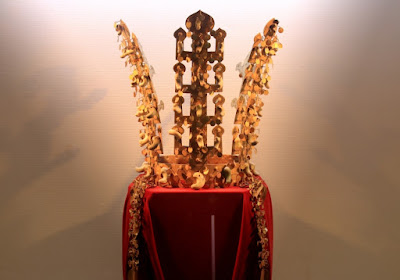SALON HISTORY
A salon is a gathering of people held by an inspiring host. ... Salons were an important place for the exchange of ideas. The word salon first appeared in France in 1664 (from the Italian word salone, itself from sala, the large reception hall of Italian mansions).
Salons are nothing new, humans have been gathering together to discuss and debate ideas, and to share and savor new literature and music for centuries. They fall in and out of trend depending on the era, but for a solid 400 years or so, from about 1500 – 1900, salons were popular across Europe. The term salon suggests some modicum of regularity, say, weekly, (alright, that’s too much! Monthly ok!) and with that regularity came conversation, connection and community. Sometimes salons centered around a specific theme like poetry and at other times they were more general in scope. But the one central theme amongst them all was that the focus was on listening and speaking to each other, learning from those around you, your fellow guests at the salon. 대딸방
While the roots of the salon can be found in Ancient Greece and Rome, the first recorded salons took place in Italy in the 15th Century, and these were a precursor to the Enlightenment Period. They were an opportunity for artists, poets, musicians, thinkers, the Renaissance intellectual glitteratti and their hangers-on, to come together across social classes to hob-nob and share ideas out of the scrutiny of the Roman Catholic Church.
In French, the word ‘salon' simply means ‘living room' or ‘parlor', and Rococo salons refer to central rooms that are designed in the Rococo style.
The Rococo interior reached its height in the ‘total art work' of the salon.
Rococo salons often employed the use of asymmetry in design, which was termed ‘contraste.'
Two excellent examples of French Rococo are the Salon de Monsieur le Prince in the Petit Château at Chantilly, decorated by Jean Aubert; and the salons in the Hotel Soubise, Paris, by Germain Boffrand.
Discuss the importance of the Rococo salon in France and its typical design
Today, a salon is a store one goes to for an expensive haircut. In 18th century France, salons were organised gatherings hosted in private homes, usually by prominent women. Individuals who attended often discussed literature or shared their views and opinions on topics from science to politics. The salons consequently became an important source of political ideas and revolutionary sentiment.
The earliest salons date back to the early 1600s, to a literary circle hosted by the Marquess de Rambouillet, an Italian-born French aristocrat. Rambouillet’s salon became a meeting place for the Paris intelligentsia and the nation’s literary set. These early salons were more informal than later gatherings. Discussions were less planned and structured and there were more games, light banter and socialising.
Paris and Versailles boasted dozens of fashionable salons by the 1780s. Most were dominated by women of the nobility and the haute bourgeoisie.
Some salonnières became celebrities in their own right. Suzanne Curchod, the wife of Jacques Necker, ran a popular society salon in Paris in the 1770s; some of the regulars at Madame Necker’s salon supported her husband’s elevation into the king’s ministry.
Sophie de Condorcet, the wife of the Marquis de Condorcet, ran a well-patronised salon attended by several philosophes and, at various times, Anne-Robert Turgot, Thomas Jefferson, the Scottish economist Adam Smith, Olympe de Gouges and Madame de Staël.
Perhaps the best known Paris salon was hosted by Marie-Jeanne, Madame Roland, whose home became a gathering point for republican Jacobins in 1791 and 1792.
Salons and revolution
The contribution salonnières made to political thought, revolutionary ideas and gender relationships is debated by historians, as it was by contemporaries.
The involvement of women lay at the heart of uncertainty about the salons and their political impact. Many 18th century thinkers thought that science, politics and philosophy were masculine pursuits. They believed the Enlightenment would benefit women but that women themselves should have no part in it.
Jean-Jacques Rousseau was one Enlightenment philosophe opposed to salonnières and the involvement of women in political debate. Rousseau believed women, being intellectual inferiors, would drag down or taint scientific and philosophical discussion. Denis Diderot, who wrote extensively about the virtues of women, took the opposite view.
According to historian Barbara Caine, Diderot “insisted that the presence of women made it necessary to discuss the driest subjects with clarity and charm.”

Comments
Post a Comment